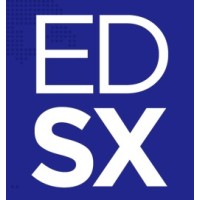A new age has started with tokenized systems shifting from centralization. Blockchain enables decentralized creation and transfer of assets. Both Switzerland and STOs aid this evolution. The country adopts distributed ledger tech for tokenized securities. Our world holds varied asset classes like money, gold, property and intellectual rights. Many can be hard to trade physically or split up. However, blockchain technology provides solutions through applications in Switzerland and STOs that enhance liquidity, accessibility and transparency for assets.
Blockchain allows creating digital units holding property traits. Civil law defines property as exclusive rights over an asset. Blockchain grants this for digital items through programming. It provides tools to code unique information attaching property ownership. Blockchain enables safely registering public transfers of this new digital property type: Blockchain Crypto Property (BCP). Owners directly control BCPs defended against others.
In addition, the introduction of Smart Contract Systems (SCS) at the application level of the blockchain has added immutable functions and property terms to BCPs, enabling not only the execution of bilateral and multilateral programs in accordance with contractual terms and conditions, but also the ability to create co-ownership like organizations. A BCP is therefore defined as a digital property that can be registered on the blockchain, in addition, it may carry out coded functions governed by an SCS, following coded or manual input by an agreed party (called an “Oracle”).
Classifying tokenized assets based purely on functionality provides consistency. Assessing legal, tax and investment risks requires reliable standards. A model and criteria can offer this, regardless of local laws.
By focusing on what tokenized products do, not where, classification allows worldwide understanding. Though regulations may vary, this approach clarifies what is and isn’t a blockchain-based crypto property (BCP). It helps all jurisdictions comprehend current and future uses.
Different rules in each place may still apply later. But first, defining tokens based on functionality instead of definitions creates shared ground. Later, local laws decide how each token is treated. For now, what matters most is having clear and objective criteria everyone can reference.
Only analyzing functionality, not jurisdiction, makes risk assessments comparable globally. While regulations differ, this lets all understand the risks inherent in various products and properties. It eases evaluating investment suitability too.
Ultimately, local rules will produce disparate outcomes. Yet a functional classification helps everyone grasp the nature of tokens upfront. Later, regulation can layer on top appropriately in each place.
The objective of the risk assessment and resulting BCP rating is to increase awareness and serve as a basis for establishing governance and diligence standards for all aspects of creating, offering, transferring and holding tokens.
Switzerland, which is known for their superb banking system and strict regulations, was one of the first in the world that started explicitly to exercise control on ICO/STO (Initial Coin Offering / Security Token Offering) issuance and crypto fundraising.
The Financial Market Supervisory Authority (FINMA), responsible for the supervision of Swiss-registered STOs and ICOs, published a set of guidelines that every issuer must observe in order to be legally compliant.
FINMA Guidelines:
www.finma.ch/en/~/media/finma/dokumente/dokumentencenter/myfinma/1bewilligung/fintech/wegleitung-ico.pdf?la=en
Three categories distinguish tokens: payment tokens (cryptocurrencies), asset tokens (security tokens) as well as utility tokens. Regulators introduced asset token regulations to provide reliable investment information and minimize risk for buyers.
Security token offerings are obliged to meet FINMA criteria and are characterized as tokens that are issued in vast quantities of equal value. Under the Code of Obligations (CO), keeping a record book of all transferred tokens and their shareholders is fundamental. Thanks to the blockchain technology keeping a record of the aforementioned token holders and transactions allows fast and secure execution of transactions.
In addition, asset tokens mimic the traditional financial instruments. Hence, the obligation of publishing a Prospectus in accordance with the rules of Swiss Code of Obligations is also needed.
You can find the document here: https://www.access-info.org/wp-content/uploads/col_Authenticity-Swiss%20law-materials.doc
One of the critical elements of FINMA’s regulations is the adherence to the anti-money laundering policy and the code of conduct for the STO/ICO projects. All introduced and implemented by the issuer mechanisms for fraud protection are being evaluated and assessed.
Switzerland’s stringent policies for overseeing crypto ventures have earned it a spot as one of the top three regulators, alongside Malta and Gibraltar. The country also birthed the Ethereum Foundation, showing its powerful role in cryptocurrency.
EDSX is fully compliant with FINMA`s regulations and exercises business practices that are in accordance with the Swiss laws. Mandatory prospectuses publish in accordance with issuing public securities obligations. Requirements keep all anti-money laundering to the highest standard.
From January 2020, Swiss prospectus regulation harmonizes with EEA rules and directives on financial instruments and prospectuses, with slight differences on SME thresholds for prospectus-free issuance to facilitate start-up capital raising.

Based in Zug, the platform is fully compliant with all Swiss laws related to financial intermediaries, banking, anti-money laundering, and organized trading facilities. Among its core values, there are innovative solutions through blockchain technology, which ensures security and liquidity.
EDSX is the first platform in Europe with primary and secondary markets for both institutional and retails. EDSX is a pioneering platform that employs the world’s leading technology to globally list security tokens in both primary and secondary markets, listing digital securities of real financial instruments to the public with a decentralized peer-to-peer exchange. Our goal is to fully engage every aspect of the financial revolution.
Do you have a question for us?
Send your query here:
[email protected]

